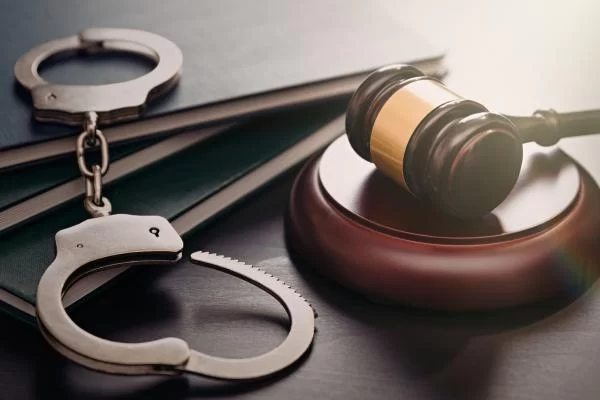- Understanding the Legal Process in Criminal Cases
- Key Strategies to Defend Yourself Legally
- Importance of Hiring a Qualified Criminal Defense Lawyer
- Real-Life Examples and Lessons Learned
Understanding the Legal Process in Criminal Cases
When facing criminal charges, the first and most crucial step in knowing how to defend yourself legally in a criminal case is to fully understand the legal process you will be navigating. Criminal proceedings can be complex and intimidating, involving stages such as arrest, arraignment, plea bargaining, trial, and sentencing. Each phase presents different challenges and requires specific legal knowledge.
For example, after an arrest, defendants are usually brought before a judge for an arraignment where the charges are formally read. Knowing your rights at this stage, such as the right to remain silent and the right to legal counsel, is vital. Missteps here can lead to complications later in the case.
It’s also important to realize that the burden of proof lies with the prosecution, meaning the defendant does not have to prove innocence but rather the prosecution must prove guilt beyond a reasonable doubt. This fundamental principle underpins many effective defense strategies.
Understanding Charges and Evidence
Knowing the specifics of the charges against you is essential to crafting a legal defense. Charges may range from misdemeanors to felonies, each carrying different consequences and requiring different defense approaches. Reviewing the evidence the prosecution presents—such as witness statements, physical evidence, or surveillance footage—can reveal weaknesses or procedural errors that could be used in your favor.
Legal Rights and Protections
Every defendant has constitutional protections, including the right to a fair trial and protection against unlawful searches and seizures. Understanding these rights can prevent law enforcement or prosecutors from overstepping their authority and can serve as grounds to challenge evidence or procedures.
Key Strategies to Defend Yourself Legally
Knowing how to defend yourself legally in a criminal case means applying sound strategies tailored to your situation. Here are some crucial defense approaches that can be effective:
1. Challenge the Evidence
Often, successful defenses hinge on exposing flaws in the prosecution’s evidence. This might involve questioning the credibility of witnesses, uncovering inconsistencies in testimony, or demonstrating improper evidence collection methods. For example, if law enforcement violated the defendant’s rights during an arrest or search, a motion to suppress evidence may be filed to exclude tainted evidence.
2. Present an Alibi or Alternative Explanation
Providing an alibi is a powerful defense strategy that places the defendant elsewhere when the crime occurred. This requires credible supporting evidence such as witness testimony, receipts, or video recordings. Alternatively, presenting a different interpretation of the events can cast doubt on the prosecution’s version of the story.
3. Use Self-Defense or Justification
In cases involving violence or property damage, arguing self-defense or necessity can be a legitimate legal defense. To succeed, it’s necessary to show that the defendant acted to protect themselves or others from imminent harm and that the force used was reasonable under the circumstances.
4. Negotiate Plea Deals When Appropriate
While fighting the charges outright is an option, sometimes negotiating a plea deal can minimize penalties or avoid trial. This requires careful assessment of the risks and benefits and often the guidance of an experienced attorney.
Importance of Hiring a Qualified Criminal Defense Lawyer
Although self-representation is a legal right, it is rarely advisable in criminal cases due to the complexity and high stakes involved. A skilled criminal defense lawyer provides essential expertise, from understanding procedural rules to formulating strategic defenses.
Working with a professional can improve your chances of a favorable outcome by ensuring that your rights are protected throughout the process. They can also provide clarity on possible consequences and help manage negotiations with prosecutors. If you’re unsure where to start, contacting Fred Miller Lawyer can connect you to qualified defense professionals who tailor legal services to your specific needs.
How a Lawyer Enhances Your Defense
A criminal defense attorney evaluates the strengths and weaknesses of your case, investigates evidence independently, and identifies possible defenses you might overlook. They are also crucial in advising you on whether to accept plea offers or proceed to trial.
Real-Life Examples and Lessons Learned
Consider the case of John, who was accused of assault based on eyewitness accounts alone. His lawyer challenged the reliability of those witnesses by presenting phone location data proving John was elsewhere. This created reasonable doubt, ultimately leading to case dismissal. This example highlights how evidence beyond testimony can be pivotal.
In another instance, Lisa faced drug possession charges. Her attorney successfully argued that police lacked probable cause to conduct the search where drugs were found, resulting in suppressed evidence and dropped charges. These cases emphasize the importance of scrutinizing every procedural step in a criminal case.
Stories like these not only provide hope but also demonstrate the power of thorough legal defense strategies. They remind defendants to never underestimate the value of competent legal representation and a proactive approach.
Understanding how to defend yourself legally in a criminal case is not just about knowing the law but also about being strategic, informed, and prepared. Whether you’re facing minor accusations or serious felony charges, a thoughtful defense can make all the difference.
For personalized legal guidance and professional defense strategies, visiting Fred Miller Lawyer is highly recommended to secure the most suitable legal support for your unique circumstances.


 massey stotser
massey stotser anthem taxes reviews
anthem taxes reviews law offices of nicomedes e suriel
law offices of nicomedes e suriel centennial divorce lawyer
centennial divorce lawyer mark gallagher attorney
mark gallagher attorney michael kushner lawyer
michael kushner lawyer